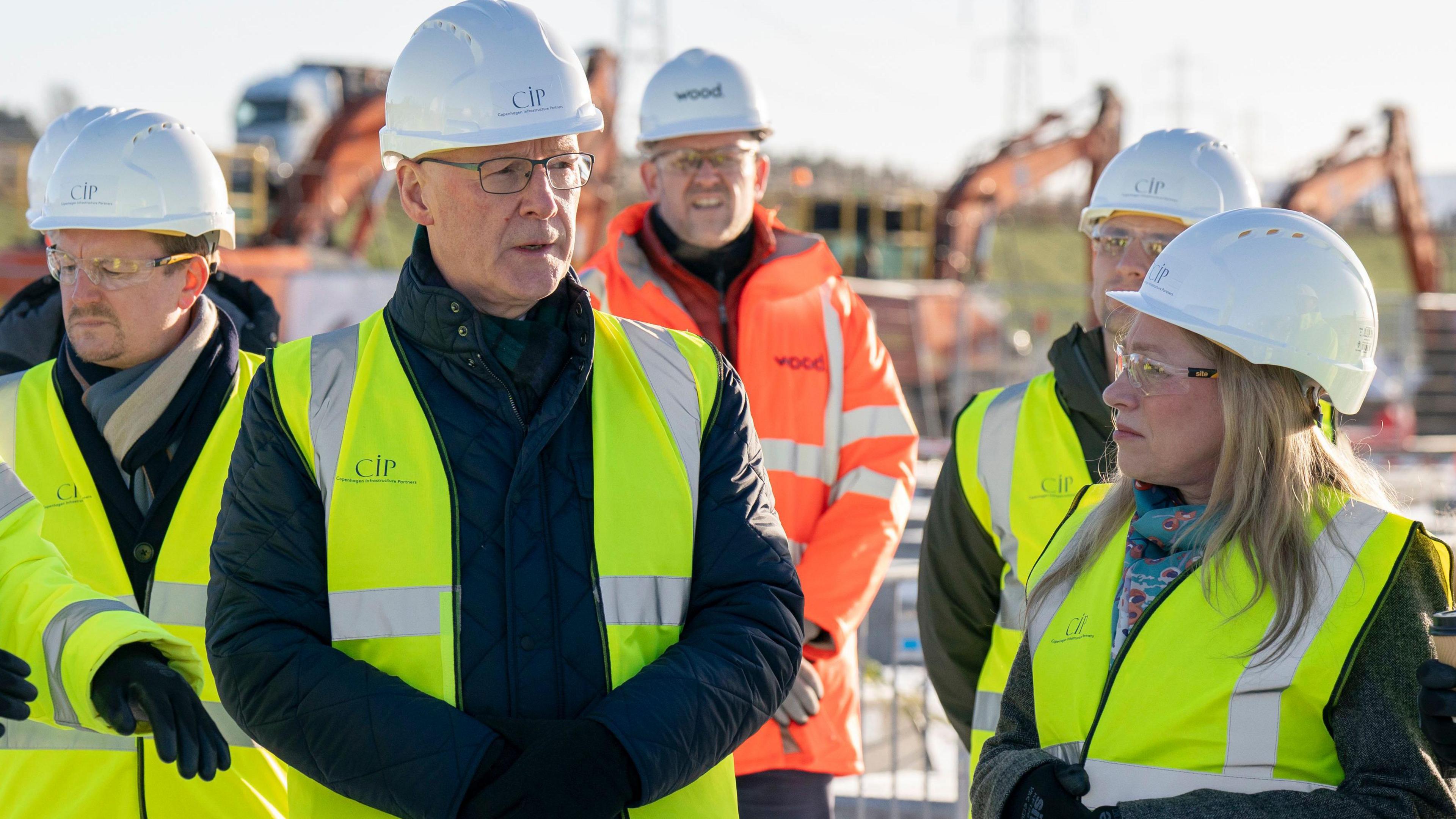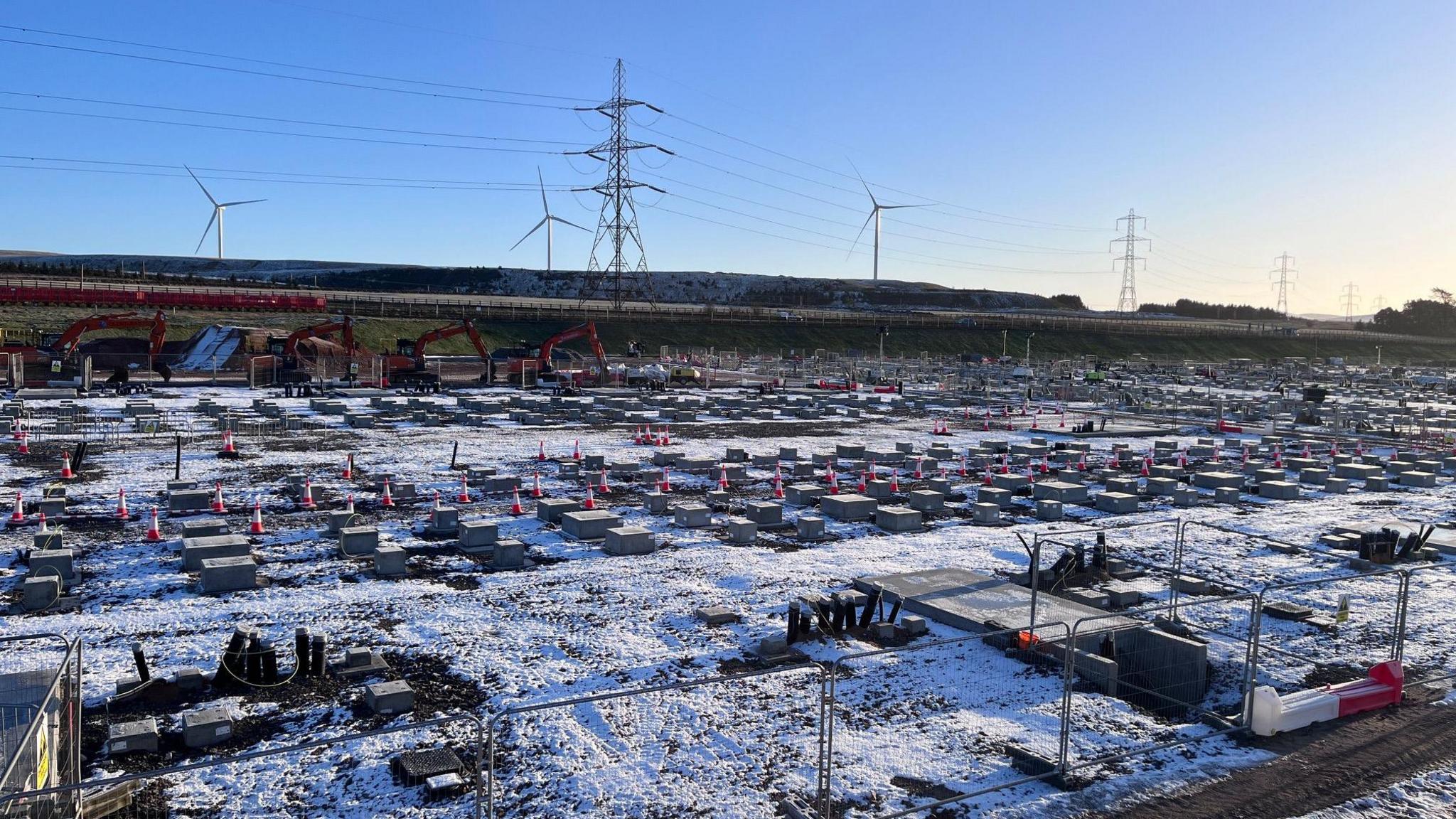South Lanarkshire is set to host Europe’s largest battery storage facility, as construction advances on two massive battery farms near Coalburn.
Developed by Copenhagen Infrastructure Partners, the project will store renewable energy to help stabilise the grid, providing power for up to three million homes by harnessing excess electricity from wind farms and discharging it during peak demand.
Battery Energy Storage Systems (BESS) are being built across the UK to help balance the electricity grid, which is becoming increasingly powered by renewables.
Almost 90% of the electricity generated in Scotland last year was from low carbon sources like wind, solar or nuclear, according to figures from the Scottish government.
To help balance the peaks and troughs of renewables, the National Grid estimates that the UK would need to see BESS provision grow almost six times over by the end of the decade.
The one gigawatt facility at Coalburn is being constructed in two phases.
It will be charged using excess power from wind farms with the electricity being discharged when demand is high or renewable generation is low.
The giant batteries will operate for two hours at a time before being depleted.
Work on the first phase started in November 2023 and is due to be operational later this year.
The developers – Copenhagen Infrastructure Partners (CIP) – have confirmed that construction will begin shortly on stage two.

Nischal Agarwal from CIP said the projects would enhance the the country’s energy security.
He added it would support the UK’s pursuit of a clean power system by 2030 and deliver a net-zero carbon economy by 2050.
Alongside the final investment decision for the Coalburn 2 site, CIP has also confirmed that work will begin soon on a similar sized battery farm near Kincardine in Fife.
The Devilla site will take the company’s storage capacity up to 1.5GW.

Visiting the Coalburn 1 site, first minister John Swinney said the investment would deliver a significant contribution to the growth of Scotland’s energy transition infrastructure.
“By helping to supply reliable and secure power to our homes and businesses, well-located storage systems, such as batteries and pumped hydro storage, can move us closer to net zero and directly support the communities around them.”
The second phase of the Coalburn development is being built on the former Broken Cross open cast workings about four miles south of Lesmahagow.
Owner Hargreaves Services announced in 2016 that it was ending mining there along with five other sites in Scotland.
A nine turbine wind farm is being constructed on the site, with work due to begin this year on the second phase of the Coalburn 2 battery storage site.
The project is expected to reach full capacity by the end of 2027.